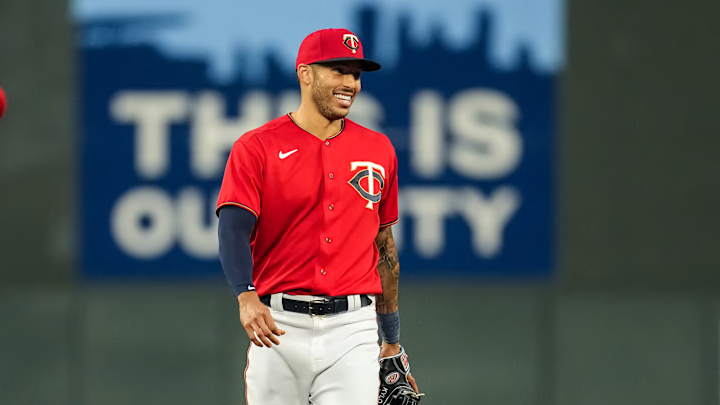Many of the top free agents from this winter have already signed. Unfortunately, none of those players signed with the SF Giants. However, a couple of intriguing names like Carlos Rodón
and Carlos Correa remain. If the Giants are to sign either one of them, it is going to take them out of their comfort zone and that is what they need.
The SF Giants need to get out of comfort zone to land next big star
Farhan Zaidi took over as president of baseball operations in November of 2018. Since then, the largest contract that the Giants have handed out has been a three-year, $43.5 million pact to outfielder Mitch Haniger. In fact, they have handed out just two other three-year deals to Tommy La Stella and Anthony DeSclafani.
Under Zaidi's guidance, the Giants have largely avoided risk in terms of length. They would prefer to pay a higher average annual salary than tack on another year to a deal. San Francisco is not alone in this regard.
The Los Angeles Dodgers and Tampa Bay Rays operate similarly. Of course, the Dodgers make exceptions when a player like Freddie Freeman reaches free agency. Typically, they prefer to complete shorter-term deals.
The benefit of this type of approach is that the player is off of the books sooner rather than later. Ideally, the team is paying a premium for a player's peak seasons while largely avoiding regression years. It does not always work out that way, but that is the thinking behind it.
With San Francisco, it is hard to exactly identify whether it is ownership or the front office driving this strategy. It could be a mix of both where Zaidi's approach to free agency aligns with ownership's interests.
However, it is clear that the Giants are trying to avoid handing out an underperforming contract by avoiding long-term contracts altogether. If a player does not perform on a three-year deal, then it is off of the books in a relatively short period of time. If it is a five-year deal or longer, then it really just drags on.
The Giants appear to still be scarred from the contracts handed out to Mark Melancon, Johnny Cueto, and Jeff Samardzija. These three contracts amounted to an investment in the neighborhood of $280 million.
The Giants were hoping that these big moves would help keep the previous competitive window open. Perhaps, it did for one season in 2016. By the end of it, Samardzija was barely a functional starter, Melancon was rarely used in leverage situations, and Cueto was left off of the playoff roster in 2021.
The Giants have watched as nearly every long-term deal has fallen off of the books. As of right now, they have $32 million in guaranteed payroll on the books for 2024. They have succeeded in creating payroll flexibility, but it has come with a cost.
The Giants just do not have a roster that excites free agents. It is hard to convince free agents to not only sign, but that the front office and ownership will continue to spend to put a competitive team on the field.
This leads us to where the Giants are at right now. Shorter-team deals are their comfort zone, but that is not going to help them re-sign Carlos Rodón or land Carlos Correa. They need to step out of their comfort zone.
And, to be honest, the comfort zone has created the issue where San Francisco currently sits. They do not want to give out a seven-year deal to Rodón but that is likely what it is going to take. Or, they are hesitant to give out a 12-year deal to Correa, but that is likely what it is going to take. The market has been unusually hot this winter with free agents landing deals well beyond their expected length.
If the Giants wanted to avoid this, they could have signed Kevin Gausman to a five-year, $110 million deal last winter. One year later and that contract seems extremely reasonable compared to what some players have received this winter. Or, they could have signed Marcus Semien to a seven-year, $175 million contract.
He may not be on the same level as Correa but he fulfills a similar role on the roster. The Giants could have avoided the position they are in now, but they were too risk-averse.
This needed to be a big winter for San Francisco. It still can be, but with so many names off of the board, the odds are not in their favor. They can still change the narrative, but they will need to redefine what that comfort zone is.
